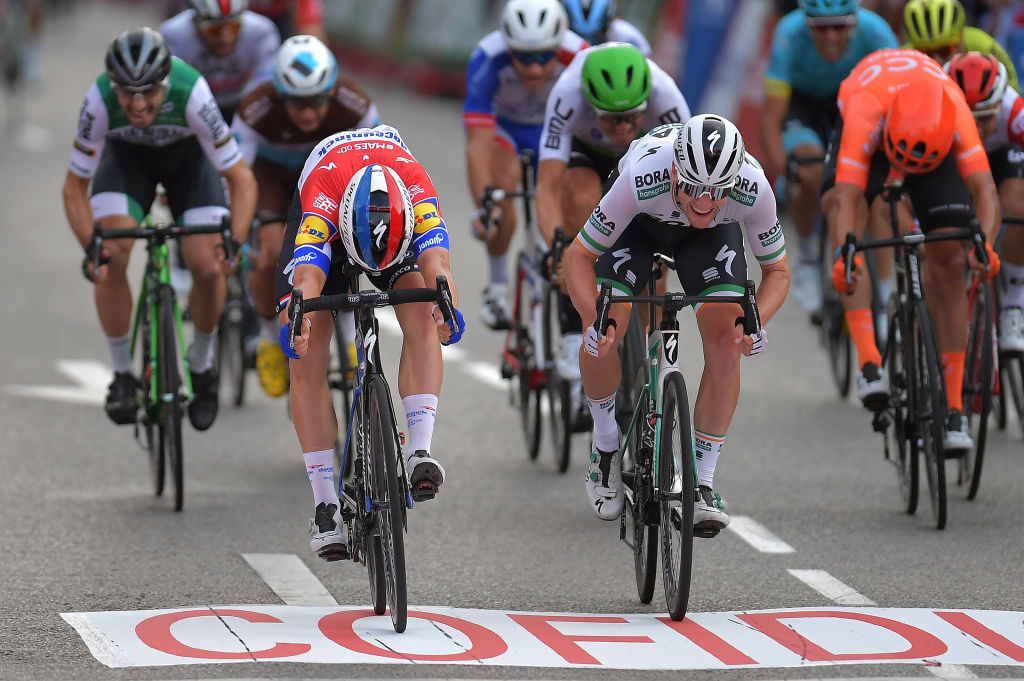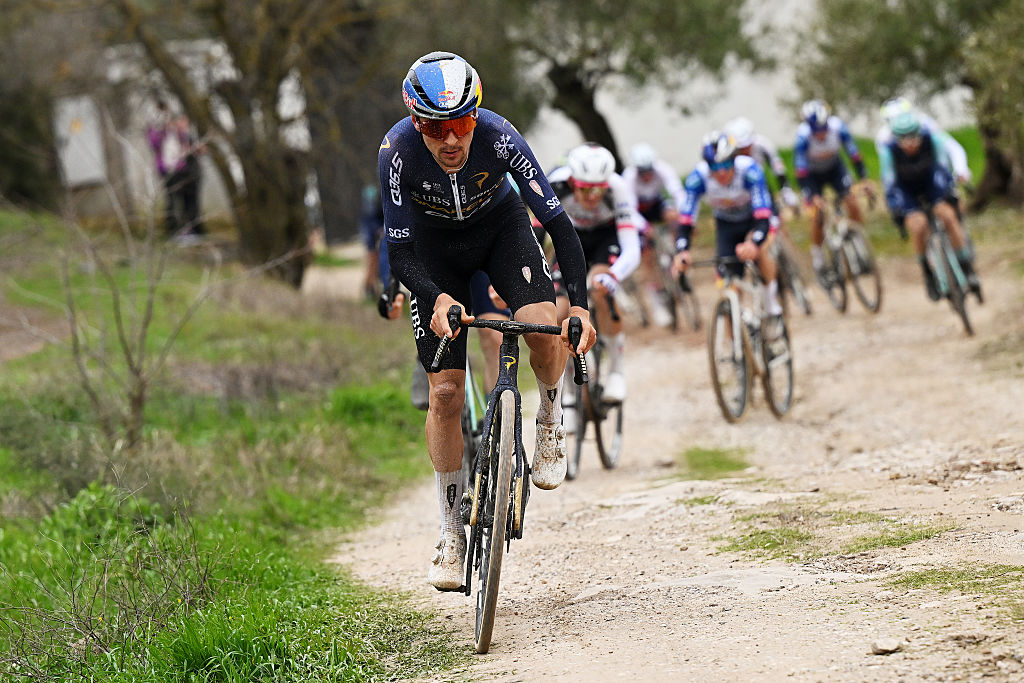Jakobsen makes it five for Deceuninck-QuickStep at Vuelta a España
Lefevere: 'If the Jumbo-Visma car hadn't blocked us in the TTT it would have been six'

The latest race content, interviews, features, reviews and expert buying guides, direct to your inbox!
You are now subscribed
Your newsletter sign-up was successful
Twenty-three-year-old Fabio Jakobsen (Deceuninck-QuickStep) claimed an impressive second victory at the Vuelta a España on Sunday evening, winning the final stage and making it five victories in total at the Spanish Grand Tour for the Belgian squad.
Already victorious on stage 4 of the Vuelta a España, Deceuninck-QuickStep racked up two victories with Philippe Gilbert and one with Remi Cavagna. Jakobsen then bounced back into contention in Madrid for his team's 64th win of 2019.
After Astana had made a brief surge to the front in the final kilometres of the short final stage, Trek-Segafredo and Sunweb did their utmost to provide a lead-out for Edward Theuns and Nikias Arndt, respectively. But a long drive by Max Richeze put Jakobsen en route to gaining some much-needed sunlight between him and his rivals.
Despite being boxed in, double Vuelta stage winner Sam Bennett (Bora-Hansgrohe) tried to draw equal with his Dutch rival, and went neck-and-neck with Jakobsen all the way to the line.
But, in the end, the Dutch national champion managed to get the better of his Irish counterpart, winning by half a wheel.
Asked if he now saw himself as one of cycling's top sprinters, Jakobsen put his win into a personal context as well as the wider one.
"I didn't expect to get to Madrid, to be honest. It's my first Grand Tour and it was very hard. I'm not a climber, and I suffered," he said.
The latest race content, interviews, features, reviews and expert buying guides, direct to your inbox!
"But I think if you win the final stage in Madrid, I can say I'm one of the top 10 sprinters in the world."
As for how the first and the second sprint stages compared, Jakobsen said the first stage was a relief, because it came more or less within his expectations, given he already knew he could race well for a week, he had a strong team to back him and he had put himself under pressure to go for the victory. "But this one is overwhelming, it takes me over the moon," he reflected.
Asked to describe how he had taken his second win, Jakobsen gave an explanation of a textbook path to victory, beginning by saying that when the race had come onto the Madrid circuit for the last 10 laps, teammates Tim Declercq and Eros Capecchi had kept a break by Diego Rubio (Burgos-BH) y Daniel Martínez (EF Education First) under control.
Then, he recounted, Cavagna, Zdenek Štybar and Gilbert kept Richeze and Jakobsen in the front whilst the fight for position intensified on a little rise to around three kilometres to go, with Deceuninck-Quick Step's sprinter and lead-out man still well-positioned and tucked in behind.
Going into the finale in rich detail, Jakobsen explained that "Stybar took to the front there, I was behind Max and we waited until another team passed and that was Trek, and when they did that, we accelerated as well so Max could use their slipstream a little bit.
"I waited behind Max to launch my sprint, and with 700 metres to go I checked to see who was behind me on my wheel and it was Sam Bennett. By now everybody knows that Sam Bennett has a real world-class kick, so I didn't want to go too soon, and then, with 150, 125 metres to go, I gave it everything to the line. I even threw the bike just to be sure that I was the first."
"I'm very proud," Deceuninck-QuickStep team manager Patrick Lefevere told Cyclingnews when asked how he felt about his team's prolific run of success in the Vuelta a España. "And I almost forgot, but if it hadn't been for the Jumbo team car blocking us in the TTT, it'd have been six stage wins, not five.
"But I'm not complaining. I'm a little bit sad for James [Knox], because without his crash [on stage 19] he'd have been inside the GC top 10. The guys [teammates, in particular, Štybar and Gilbert] saved him, but just a few seconds [less time lost] and he'd have still been ninth. But, overall, we've had a fantastic Vuelta."
Alasdair Fotheringham has been reporting on cycling since 1991. He has covered every Tour de France since 1992 bar one, as well as numerous other bike races of all shapes and sizes, ranging from the Olympic Games in 2008 to the now sadly defunct Subida a Urkiola hill climb in Spain. As well as working for Cyclingnews, he has also written for The Independent, The Guardian, ProCycling, The Express and Reuters.

